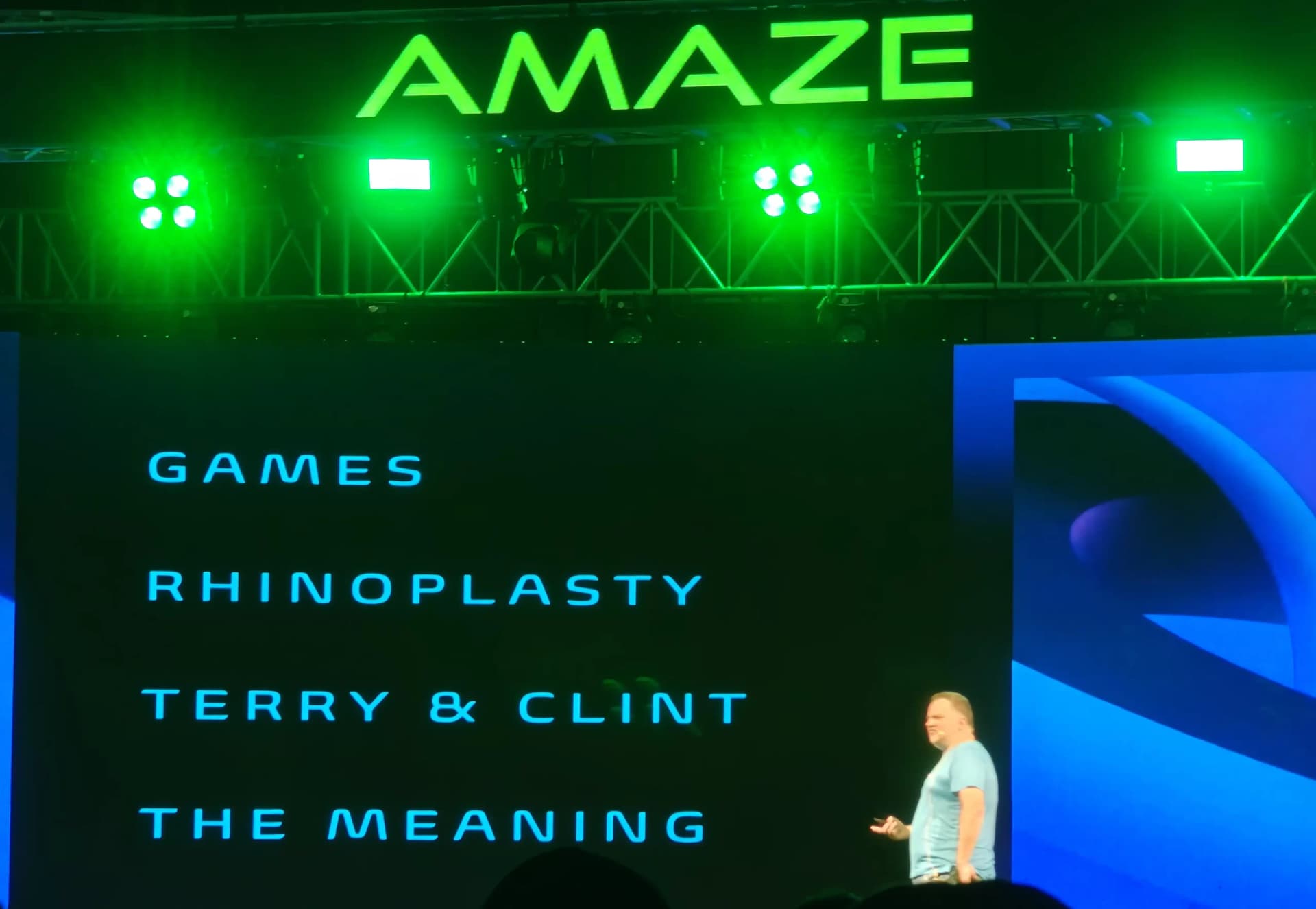
Some sessions remind you why you fell in love with this industry.
Ted Kubaitis at AmazeConference India 2025 gave one of the best sessions.
His session was one of the most honest and technical ones I’ve attended in years. He spoke about the State of SEO with the kind of clarity that only comes from testing thousands of pages and patterns.
Ted explained how data-driven SEO is moving past vanity metrics. The future of audits isn’t just about broken links or missing tags. It’s about contextual gaps, where your brand fails to exist in structured ecosystems like schema, entities, and relationships.
When he spoke about schema as connective tissue, it resonated deeply with how we transformed the enterprise B2B manufacturing client in the US. In that project, our first move wasn’t just keywords or content. We rebuilt the site architecture and layered schema to encode meaning.
That client had a technically complex product line, tough buyer personas, and long sales cycles. They needed more than surface SEO. They needed retrievability.
We gave each major product category a structured hub, with subpages that tied into material specifications, use cases, standards, and regional markets.
And all was mapped with schema and linked internally.
I saw that, and understood the context he was trying to explain.
What stuck with me was his point that “visibility” now means retrievability, not rank.
If the model can’t find you, it can’t mention you.
And if it can’t mention you, you don’t exist in modern search.
That single line changed how I now look at audits.
Pre-project, many pages on that B2B site ranked moderately. But they were invisible in the minds of systems trying to connect context.
After restructuring and schema layering, the site climbed in sustainability, not just spikes.
The client began appearing in broader contextual searches. For example, “flanges for industrial use in Texas,” “ANSI flange distributors in US markets,” not because of backlinks alone, but because the content structure exposed it.
One thing I strongly agree with Ted: audits today must read like narratives.
They should reveal where the client’s brand fails in semantic ecosystems, not just broken links or missing tags. I’ve always treated audits as storytelling tools, and his data-backed framing reinforced that mindset.
Most underperforming sites fail because they lack structure. I agree with that.
An audit should read like a story, not a checklist.
It should show how the brand connects, where it loses meaning, and how users and systems both see it.
I also treat audits like a map. We trace relationships between pages, intent, and topics. We look for where meaning breaks, and Ted’s data-backed talk only strengthened that belief.
However, where I diverge slightly: Ted leans heavily on measurable signals.
That’s wise. But I’ve seen creative narrative outperform perfected structure when the brand voice is authentic.
In the case of one of our clients in Melbourne (the party / event planning business), structure was essential (NAP fixes, local landing pages, internal linking).
But what made people feel your brand was storytelling in content around local events, trends, use cases.
Even in structured frameworks, there’s room for emotional resonance.
The balance is delicate.
The best SEO lives at the intersection of machine-friendly structure + human storytelling.
Ted gave us the scaffolding. As strategists, we must still build the spaces people want to live in.
Now, we’re not just optimizing for Google anymore. We’re optimizing for every system that retrieves and interprets content.
After his talk, we caught up for a few minutes.
It turned into one of the best exchanges I’ve had in a while.
We discussed the future of SEO.
The role of schema.
And how this is one of the most exciting times to be in search.
We even spoke about Google Ads costs, the idea of LLM platforms launching their own ad models, and whether Google will push ads into AI Overviews.
It was an honest, open conversation between two people who care about where search is heading.
Thank you, Ted, for the insights, the honesty, and the reminder to never live a life of regrets 🙂
With over 15 years at the forefront of strategic business growth, Sanjay Bhattacharya collaborates with CEOs and founders to reshape market positioning and drive sustainable success. Throughout his journey, he has worn many hats—from Fractional CMO for fast-growing startups to serving as Head of Marketing & Business Strategy at PRIMOTECH. He has been Featured in Under30CEO, American Marketing Association, CMO Times, CTOsync, DesignRush, Earned, HubSpot, MarketerInterview, and more.